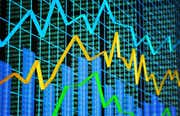Born: June 14, 1953 (Pittsburgh, Pennsylvania)
Key Positions: Pittsburgh National Bank
Duquesne Capital Management
Dreyfus Fund
Quantum Fund
Personal History:
Stanley Druckenmiller grew up in a middle-class family in suburban Philadelphia, later moving to New Jersey and Virginia. Druckenmiller attended Bowdoin College, graduating in 1975 with degrees in English and economics. Although he began a Ph.D. program in economics at the University of Michigan, Druckenmiller dropped out before completing his doctorate so that he could take a job as an oil analyst for Pittsburgh National Bank.
Druckenmiller’s financial career began in earnest in 1977. By the following year, he had already risen to become head of Pittsburgh National Bank’s equity research group. By 1981, he left to create his own firm, called Duquesne Capital Management.
Druckenmiller began to accumulate titles and positions with a number of companies. By 1985, he was a consultant for Dreyfus Fund, which prompted him to split his time between Pittsburgh and New York. In 1988, George Soros hired him to oversee the Quantum Fund. Druckenmiller was working with Soros in September of 1992, when Soros famously shorted the British pound and earned $1 billion in profits overnight.
Druckenmiller parted ways with Soros in 2000, having assumed a number of significant losses in the tech sector. In the intervening time, Druckenmiller’s focus has been exclusively on Duquesne Capital. In 2010, Druckenmiller announced the closing of Duquesne Capital in a letter to investors, explaining that the management of the fund caused a “high emotional toll” due to the internal and external pressures he faced. The fund had a stellar record, with an average annual return of roughly 30% and no single money-losing year on record.
In recent years, Druckenmiller has become increasingly active in the political realm. He has donated to the campaigns of prominent Republican candidates for office, including Chris Christie, Jeb Bush, and John Kasich. He has also made a name for himself as one of the most charitable individuals in the country. Druckenmiller serves as Chairman of the Board of Harlem’s community-based Harlem Children’s Zone. In recent years, Druckenmiller has also shown interest in possible investments in the Pittsburgh Steelers franchise of the National Football League. However, in late 2008 Druckenmiller withdrew a bid to purchase the football team. Druckenmiller maintains a family office to invest his fortune, which totals more than $4 billion.
Investment Philosophy:
Zerohedge.com has referred to Druckenmiller’s “Endgame” presentation as “his most bearish fire and brimstone sermon yet.” This reflects Druckenmiller’s top-down investment style, which he shares with Soros. Essentially, this approach to investing involves the trading of long or short positions in a number of areas based on the investor’s view of probably macroeconomic changes.
Noteworthy Publications:
- “More Money Than God: Hedge Funds and the Making of a New Elite,” by Sebastian Mallaby (2010)
- “The New Market Wizards,” by Jack D. Schwager (1995)
Quotes:
“If you’re running a business for the long term, the last thing you should be doing is borrowing money to buy back stock.”
“Part of my advantage is that my strength is economic forecasting, but that only works in free markets, when markets are smarter than people. That’s how I started. I watched the stock market, how equities reacted to changes in levels of economic activity, and I could understand how price signals worked and how to forecast them.”
“Good debt growth is when you borrow money, and it goes into the real economy. You do capital spending. You build businesses.”
The Greatest Investors: David Dreman
-
 Investing
InvestingDuquesne Capital's Druckenmiller Eliminates Halliburton, Buys 22 New Stocks (HAL, BABA)
The former manager for George Soros' Quantum Fund has made significant moves in recent months. -
 Investing
InvestingDruckenmiller, Soros Diverged in Q1 Choices: 13F
Druckenmiller focused on Chinese internet companies last quarter, while Soros bought up bank stocks. -
 Investing
InvestingDruckenmiller Adds Energy Holdings to Portfolio (PEP, KO)
Druckenmiller's Duquesne Family Office makes investments in the energy and materials sectors while cutting back on consumer staples. -
 Investing
InvestingStanley Druckenmiller Warns: ‘Fed Has No Endgame’
Why today is like (and not like) 1981 – a warning from Stanley Druckenmiller, the world's most famous forex trader. -
 Investing
InvestingStanley Druckenmiller 13F: Bought Citigroup, Alphabet In 3Q
Hedge fund titan Stanley Druckenmiller also sold Comcast and Merck in the 3Q, according to a 13F filing. -
 Trading
TradingThe greatest currency trades ever made
These speculators took big positions – and scored huge profits – in the currency market. -
 Investing
InvestingThe New Gold Rush
A number of billionaire investors are investing in the precious metal as a hedge against economic uncertainty. -
 Insights
InsightsHow Much Did Soros Lose After Trump's Election?
Soros may have lost roughly $1 billion in the stock market rally after Trump's election victory. -
 Insights
InsightsHow George Soros Got Rich
Here's how a Holocaust survivor made others wealthy on his way to becoming one of the richest people in the world.



